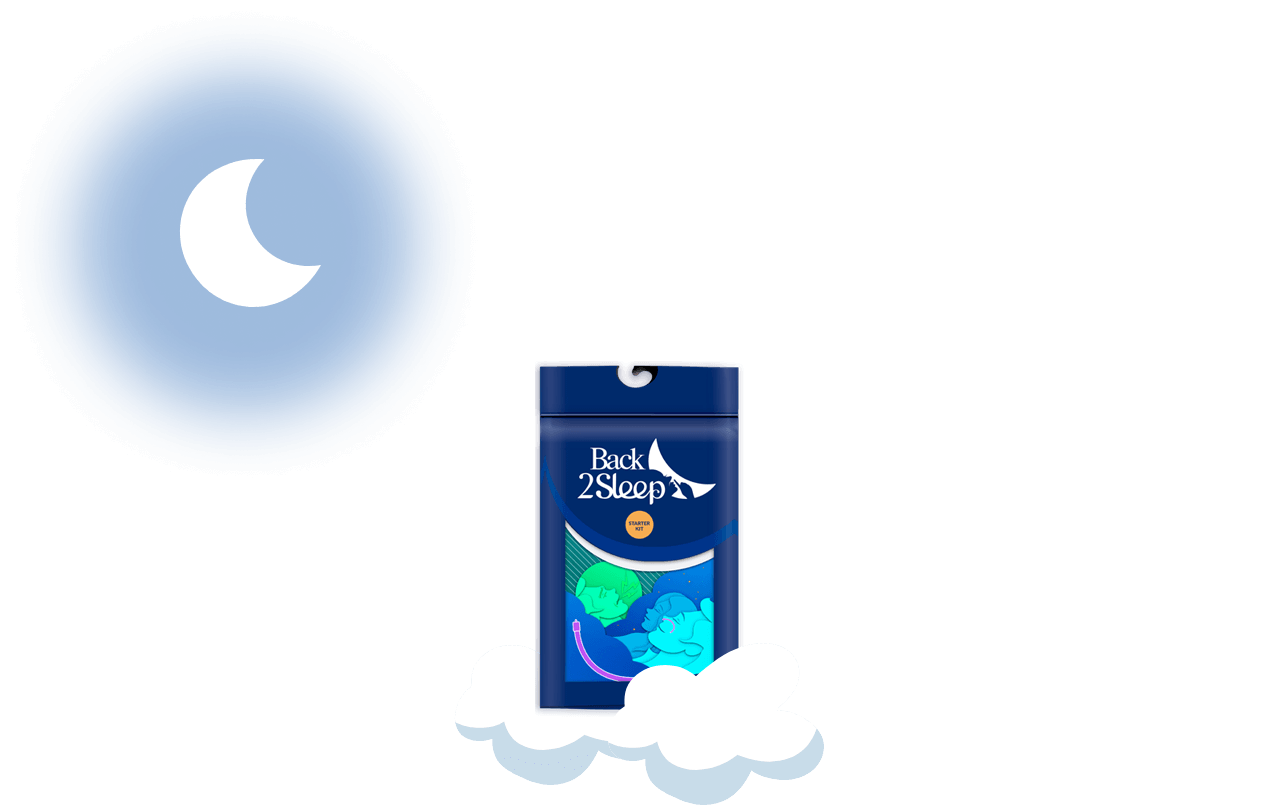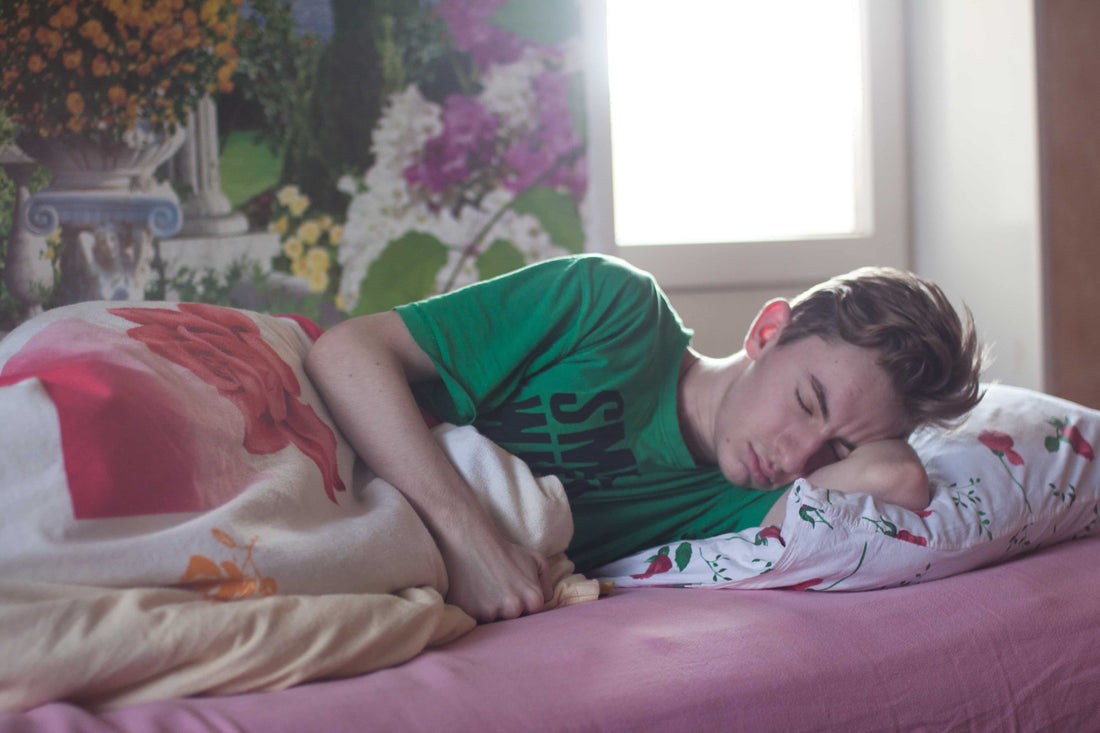Somniloquy: Complete Guide to Sleep Talking & Nocturnal Speech
Discover somniloquy, the universal sleep disorder affecting 75% of women and 71% of men, its psychological causes, effects on relationships, and how innovative solutions like Back2Sleep can improve overall sleep quality.
You may not know this sleep disorder by its medical name, but when you are told to talk while sleeping, it is immediately more telling - somniloquy is a full-fledged sleep disorder that is distinct from sleepwalking, where the affected person emits words while sleeping ranging from whispers to cries, and while the leaked sentences are mostly incomprehensible and embarrassing for the sleeper, this disorder especially disturbs the bed partner, though solutions like the Back2Sleep intranasal orthosis can improve overall sleep quality for both partners.

Sleep talking is a full-fledged sleep disorder that is distinct from sleepwalking. In the first case, the affected person does not put themselves in danger because the fact of talking while sleeping implies, as its name suggests, that sleep is not disturbed. On the contrary, sleepwalking targets a person who is active, gets up, moves and can in some cases put themselves in real danger.
A person with sleep talking emits words while sleeping, ranging from whispers to cries, not to mention crying. The leaked sentences are mostly incomprehensible. Although embarrassing for the sleeper, who may find himself faced with delicate revelations, this disorder is especially embarrassing for the person who shares his bed. However, it is not assimilated to a disease. Sleep talking remains an understudied aspect of the sleep disorder family due to the rare suffering it causes.
Somniloquy: The Numbers Behind Sleep Talking
But What Is It Due To? Understanding the Causes
You are tempted to think that people who suffer from sleepwalking are automatically affected by sleepwalking, aren't you? However, this is not a consistently valid statement. Many people experience the symptoms of sleep talking while experiencing sleepwalking, but this is not a generality. In addition, exclusive sleep talkers are rare (1.5% of the population) and are rarely consulted.
Severe Fatigue
Manifested by lack of sleep, exhaustion triggers episodic sleep talking rather than chronic occurrences.
Accumulated Stress
Large amounts of stress and psychological malaise are more likely to promote the appearance of this disorder.
Illness & Fever
Physical illness with fever presence can trigger temporary sleep talking episodes during recovery.
Substances & Medications
Taking medications causing psychotic behavior, alcohol consumption, or drug use can trigger episodes.
Generally, sleep talking occurs episodically and not chronically. This sleep disorder involves severe fatigue, manifested by lack of sleep, a large amount of accumulated stress or even an illness with the presence of fever. Also, such a disorder may be due to taking medications that cause psychotic behavior or to the consumption of alcohol and drugs.
💡 Important Note: Sleep talking is closely related to psychology given its causes. A psychic malaise is more likely to promote the appearance of such a disorder. Contrary to popular belief, a person who talks in their sleep is not necessarily a person who sleeps poorly.
Most patients with sleep talking don't even remember what they said. Be careful, if you have things to hide, sleep talking is the sworn enemy of secrets!
Learn About Sleep DisordersSomniloquy: Effects and Consequences on Daily Life
Knowing that we are almost equal when it comes to sleep talking: 75% of women and 71% of men are affected, you have the right to be annoyed if your partner shows signs of this sleep disturbance. Not being considered a disease in its own right, sleep talking can still create tension in your relationship.

The culprits? The disclosure of secrets or a majority of vulgar or even destabilizing words. Sleepers most often make reproaches and insults that target their work. So beware if you are too overworked at work, you are more likely to be grumpy in your sleep!
Secret Disclosure - Unconscious revelations can create embarrassing situations and relationship tensions
Work-Related Rants - Most sleep talking involves complaints and insults about workplace stress
Partner Disturbance - The bed partner suffers from interrupted sleep and must endure nocturnal chatter
So if you suffer from adult sleep talking, you don't have the worst role. Think of the ears that must support your nocturnal chatter...
When Should You Worry About Sleep Talking?
So, is sleepwalking a solution? Unfortunately no. As we have specified, sleep talking is not serious in itself, but only unpleasant. Therefore, it presents no cure or treatment other than patience.
⚠️ Warning Signs: You should only start worrying if you have other symptoms of sleep disorders associated with sleep talking, such as sleepwalking or bruxism (teeth grinding).
Most often, this disorder appears in young children and disappears over the years. Know that half of children talk in their sleep. You should only start worrying if you have other symptoms of sleep disorders associated with sleep talking.
| Sleep Disorder | Compatibility with Somniloquy | Severity Level |
|---|---|---|
| Sleepwalking | Can occur together but not always | Requires medical consultation |
| Bruxism | Can combine with sleep talking | Needs professional evaluation |
| TCSP (REM Behavior Disorder) | When combined, consult specialist | Serious - requires treatment |
| Sleep Apnea | May occur independently | Requires immediate treatment |
For example, sleepwalking and sleepwalking don't mix, as much as sleepwalking and bruxism. The latter includes grinding your teeth while sleeping. Can you imagine talking while sleeping and, as a bonus, grinding your teeth? Your bed neighbor will have to be as patient as hell.
Find Professional HelpManaging Somniloquy: Solutions and Recommendations
So, if your sleep talking is accompanied by another TCSP (Behavioral Disorder in REM Sleep), you should consult a health professional. As you have understood, the sleep disorder referred to as sleep talking is harmless. Talking while sleeping is unpleasant and disturbing for those around you.
Identify the Source
Look for the problem at its source, most often psychological, to solve it effectively
Stress Management
If you suspect a stress overdose, try pre-sleep relaxation methods as a sleep ritual
Sleep Hygiene
Establish consistent bedtime routines and create an optimal sleep environment
Consider Solutions
Try self-hypnosis or devices like Back2Sleep for deep, restorative sleep

The person affected by this disorder does not alter the quality of his sleep. Both children and adults can be affected by sleep talking. If you are among the minority of people chronically affected by this sleep disturbance, you must be patient.
To go further, why not try self-hypnosis to give you every chance of enjoying a deep and restorative sleep?
Improve Overall Sleep Quality with Back2Sleep
While somniloquy itself may not require treatment, improving overall sleep quality can reduce episodes. The Back2Sleep intranasal orthosis helps maintain optimal breathing during sleep, promoting deeper, more restful sleep that may reduce sleep disturbances including sleep talking.
Better Sleep Quality - Improved breathing leads to more restful, uninterrupted sleep
Reduced Disturbances - Partner enjoys quieter nights with fewer interruptions
Natural Solution - Non-invasive device that works with your body's natural breathing
Frequently Asked Questions About Somniloquy
Sleep talking is not considered a disease and is generally harmless. It's more unpleasant than dangerous, affecting 75% of women and 71% of men at some point. Only 1.5% of the population are exclusive sleep talkers requiring consultation.
Main causes include severe fatigue, accumulated stress, illness with fever, certain medications causing psychotic behavior, and alcohol or drug consumption. Sleep talking is closely related to psychology, with psychic malaise promoting its appearance.
Yes, half of children talk in their sleep. Most often, this disorder appears in young children and disappears over the years as they mature. It's generally not a cause for concern unless accompanied by other sleep disorders.
Consult a health professional if sleep talking is accompanied by other TCSP (Behavioral Disorder in REM Sleep), sleepwalking, or bruxism (teeth grinding). Also seek help if episodes are chronic rather than episodic or significantly disturb your partner's sleep.
Take Control of Your Sleep Quality Tonight
While somniloquy may be harmless, better sleep benefits everyone. Discover how Back2Sleep can improve your nights.
Order Back2Sleep TodayLearn more: Anti-Snoring Solutions | Sleep Research & News | Contact Support | About Us








